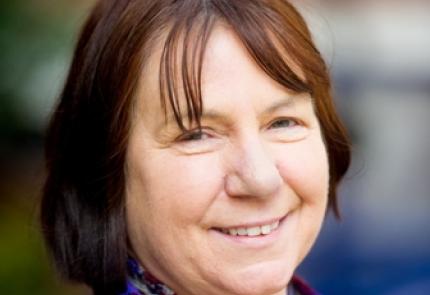)
SSCR – a place and a space
Jill Manthorpe, King's College London
Professor Jill Manthorpe is stepping down from her role as King’s College London lead on the NIHR School for Social Care Research executive team. As the 2023 SSCR annual conference closes, Professor Manthorpe reflects on the progress in social care research since the School was established.
Looking back
As NIHR’s School for Social Care Research (SSCR) moves to the end of its third phase many are focused on the road ahead. But looking back is perhaps equally helpful at this time. Taking the broad view of where social care research is now reminds us that before the School there was interest, enthusiasm and appetite for social care research but this was patchy, under-articulated and not generally shared. At times, social care research itself was uncertain about its place and space in the world of funded research.
I was reminded of this when uncovering a report on the ‘Proceedings of a National Seminar on Social Care Research Capacity’, held on 16 December 2005, in London, and getting distracted by its contents. This referred to an earlier review of social care research in 1994 which noted major limitations in funding, capacity and dissemination. The 2005 report reiterated some of these concerns but, interestingly, made several commitments to addressing some of the limits identified. These included a strategy and a promise to revisit the expanding list of limitations. Somehow, SSCR emerged from these conversations, a way to deliver the necessary evidence and possibly disrupt the notion that these reports and events were going round in circles. By 2009, a relatively short time in policy making and research funding circles, SSCR was launched, sandwiched between the launch of the School for Primary Care Research in 2006, and the School for Primary Care Research in 2012.
Building maturity and confidence
Over the 14 years of SSCR I have been privileged to work on several of its funded studies and act as an Associate Director for its first and third phases. Instead of lamenting the lack of social care research funding SSCR has enabled us to propose several applications for funding, not all successfully, to work with new colleagues and old, to hire talented researchers and work with inspirational service users, carers, frontline practitioners and managers. I have travelled to draughty shopping centres (to observe carers’ outreach in action); to portacabins housing social workers to ask about their care recording; to cavernous pubs to conduct interviews; to purpose-built day centres and multiply repurposed care homes.
An explicit focus on adult social care practice has been unique under the SSCR banner. But some of the valuable collaborations we have forged have been through tempting other researchers to social care research as that is where ‘the money is’. What a change from previous years. So it is not just in the change of name to National Institute for Health and Care Research (still NIHR) that England’s major funder has changed to include, or even embrace, social care research. NIHR investment and welcome have fostered greater maturity and confidence in the social care research community. This means we are now part of the ‘grown ups’ and expected to take part in debates about contractual processes, intellectual property, and research infrastructure. And to be alert to the changing contexts of NIHR, Integrated Care Boards and funding formula.
Looking forward
King’s lead for SSCR is now Dr Mary Baginsky who herself has moved from research interests largely focused on children and families’ social care to include adult social care. She will be part of our team of researchers who themselves come from many different disciplines and backgrounds and bring fresh enthusiasm and talents.
So job done? To some extent, SSCR has completed or witnessed the fulfilment of the actions noted in the 2005 report. And the sector is now come of age with the establishment of a NIHR Research Programme for Social Care with its own Programme Director. Social care research is increasingly co-ordinated by NIHR and the Department for Health and Social Care in partnership with other funders.
But some relationships remain to be better forged. These include universities for whom the ‘place’ of social care research is often uncertain and interest under-developed, as there are few teaching ‘programmes’ to link it with. We have not so far made good use of systems to archive our data so it can be used and reused. We need to avoid the tendency to lament the use of research in social care practice and improve clarity of message and relevance to the people concerned. And relationships between adults and children’s social care research are also under-valued. Room to do more listening here.
Read NIHR Social Care Speciality posts here →




